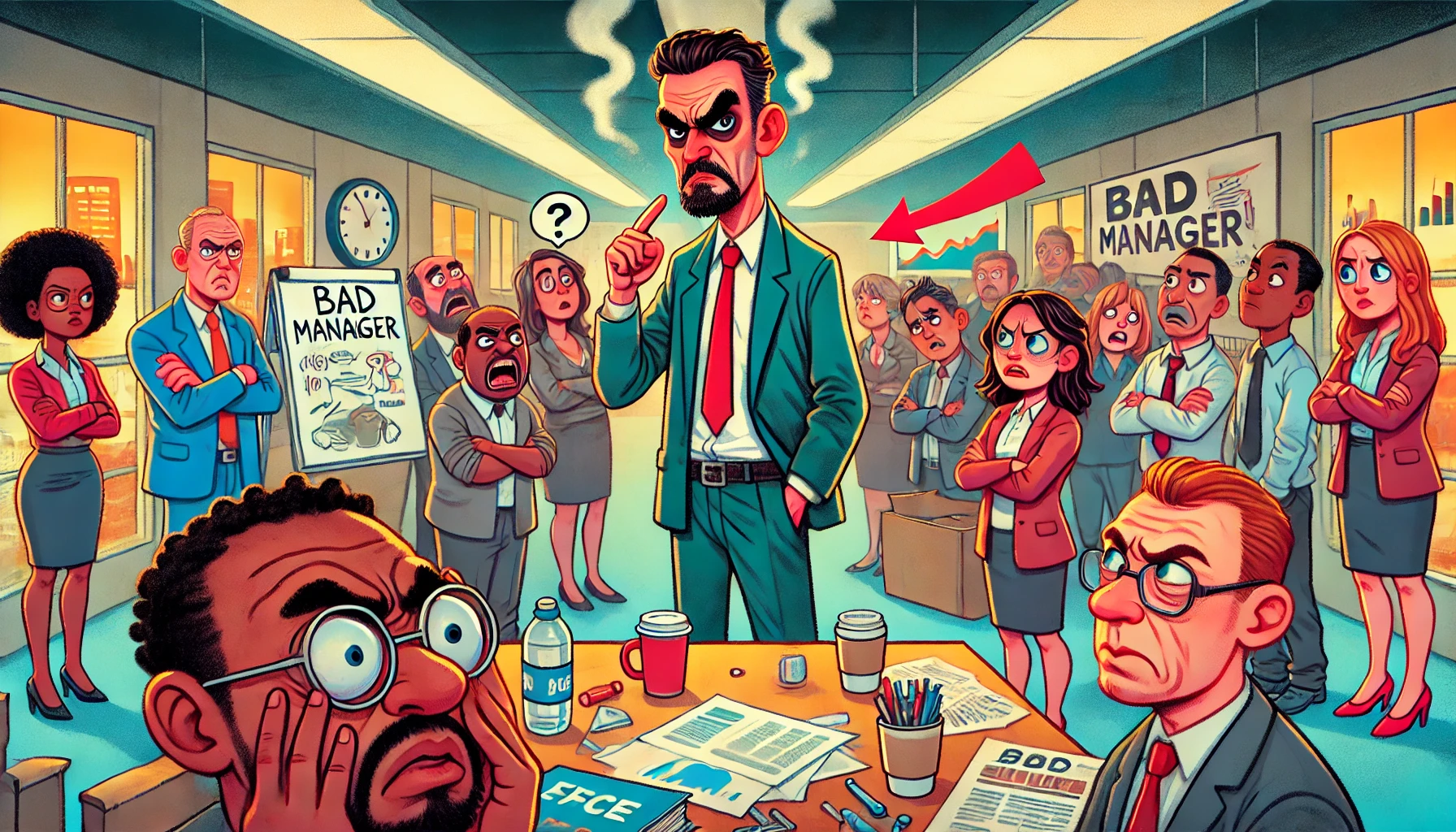
The Big Challenges Faced by Managers
We’ve all heard the complaints: “My manager is terrible.” But what if the real issue isn’t bad managers at all? Gotara’s latest industry report, Shattering the Myth of the Bad Manager, challenges this perception. The report dives deep into the structural challenges today’s technical managers face, uncovering that many are set up to fail due to insufficient support, inadequate training, and the ever-growing expectations placed on them. Far from being the problem, these overwhelmed managers are often symptoms of a much larger organizational issue. Despite the widespread belief that disengaged teams are a result of poor leadership, this new research reveals a more complex reality.
In today’s fast-paced, hybrid work environment, managers are expected to constantly adapt to dynamic and multifaceted roles—balancing team performance, driving innovation, and navigating complex workplace dynamics. As the complexity of their roles intensifies, many managers find themselves thrust into leadership positions, often lacking the necessary training or support to navigate these new responsibilities. It’s no surprise that 51% of managers surveyed by Gotara reported feeling overwhelmed or overburdened, identifying this as the biggest barrier to productivity. Without the right tools or development, these managers are left struggling to meet the high expectations placed upon them.
In Gotara’s 2024 Industry Report, the current state of managers was comprehensively analyzed from four primary perspectives.
The first perspective addresses the primary obstacles that hinder peak performance. According to Gotara’s research, one of the top four obstacles managers identify is the lack of clarity on organizational vision and goals. This lack of clarity adds complexity to managers’ roles in leading effectively. Overcoming these obstacles is crucial for managers, creating an environment where teams can flourish, and organizations can achieve their goals.
Regarding the second perspective, the analysis pointed out several insights. When managers are given chances to learn, they tend not to pick topics that directly deal with the challenges they are encountering. Just one example from the report is when managers focus on increasing their own visibility, which perpetuates a culture of prioritizing the individual over the team.
The third perspective involved managers identifying and prioritizing their needs based on how well they thought their organization was meeting them. It was clear that many needs are not being adequately met, such as understanding clear goals and expectations. These underserved needs are crucial to managers but are not being fulfilled, leaving managers in the dark, feeling unsupported.
Finally, the fourth perspective found significant differences between how managers perceive their strengths and weaknesses and how their team members see them. One key finding is a big gap between how effective managers think they are at coaching and mentoring and how team members actually experience it. For example, while 28% of managers believe they are excellent at coaching and mentoring, only 9% of team members agree. This shows an urgent need to work on crucial leadership skills. This is just one of many insights highlighting the difference between how managers see themselves and reality.
The findings from Gotara’s report paint a stark picture of managers’ challenges today. To urgently and effectively address these existing gaps in leadership, many organizations have implemented standardized manager workshops as a crucial first step. However, Gotara’s research also reveals that a one-size-fits-all approach does not work. Managers who are tasked with the same goal require different skills based on their unique past experiences, work expectations, team members, culture, and dynamics. This final piece of the puzzle suggests that organizations must also provide tailored upskilling programs that cater to each manager’s specific needs and challenges.
Gotara was founded to tackle the gender gap in technical fields but has boldly expanded its mission to empower technical talent across all levels. Their leadership development platform is specifically designed for technical professionals, offering a tailored and structured experience that drives growth and innovation. By delivering a tailored and structured experience, Gotara can help organizations give their leaders the tools to succeed in today’s complex environment and beyond.
For more insights and findings, download the full report at, Report for Employers of STEM+ Talent.
Authored by Author Bio: Brayden & Sangeeta, Gotara
